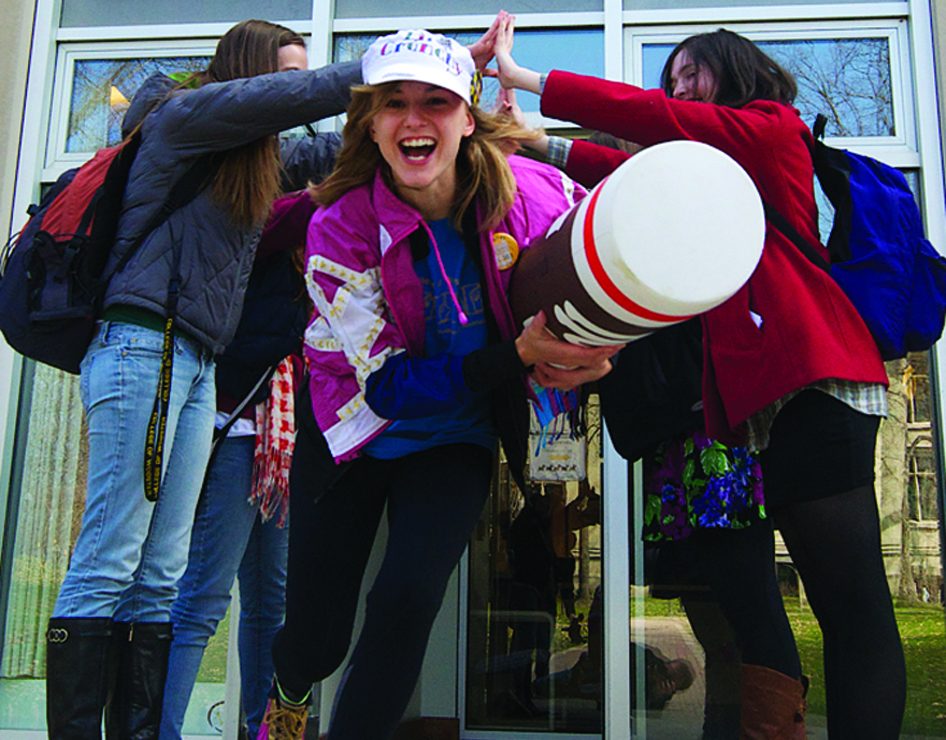
William Lee Culp, creator of I.S. Tootsie Roll custom, deceased
Anna Duke
Features Writer
Coming this spring, many seniors will hand over a year’s worth of work and receive a Tootsie Roll in return; but not many seniors think about why they receive a small piece of sticky chocolate for slaving away in a carrel all year. Each year, seniors should thank William Lee Culp, the man who established this tradition among others.
Two weeks ago, Culp passed away at the age of 95, but his influence can still be seen on campus.
Culp graduated from Wooster in 1941. After completing college, he enlisted in the Marine Corps and served in the South Pacific. There, Culp earned a Silver and a Bronze star. In 1947, two years after World War II’s conclusion, Culp returned to campus as the Director of Admissions.
He worked in many different college offices until retiring in 1985. His daughter, Cheryl Culp Dixon ’75, remembers the registrar’s office as her father’s favorite place to work “because he had so much contact with students.” Culp worked there for almost 16 years.
Culp retired in 1985 and received a distinguished Alumni Award in 2004 for his dedication to the college.
His frequent contact with the students in the registrar’s office helped Culp get the idea that turned into the Tootsie Roll tradition.
“He wanted something for the students to have [after] they turned in I.S.,” said Dixon. Culp came up with the idea of giving students a piece of candy when getting their I.S. receipt. Culp, who never gave the credit to himself, “[gave] credit to the women in the office … because they found a good deal on Tootsie Rolls,” according to Dixon.
Along with starting the famous tradition of handing out Tootsie Rolls on I.S. Monday, he also helped hash out the idea of seniors getting their own carrels. Dixon was not certain that her father came up with the original idea on his own.
“He was meeting with Howard Lowry and [the story goes] that they were having lunch at the Wooster Inn and [my father] drew out the map of the carrels [for Andrews Library] on a napkin.”
“You wouldn’t know he had [so many accomplishments in life],” said Ron Hustwit, a Wooster professor and Culp’s personal friend. “He was a small man and his stature maybe fooled you—but somehow he was much bigger,” he said. “While he was quiet and reserved in one way, he was critical and spoke with authority and with a good sense of judgment. He always had the college’s interest at heart.”
“He had a passion for the college,” said Dixon. “A lot of different people have told me that he had just about had an impact on every single person he met.” The impression that Culp left on the College can be still felt on a day-to-day basis—especially for seniors.

